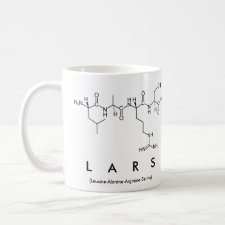
Authors: Andersson LI, Miyabayashi A, O'Shannessy DJ, Mosbach K
Article Title: Enantiomeric resolution of amino-acid derivatives on molecularly imprinted polymers as monitored by potentiometric measurements.
Publication date: 1990
Journal: Journal of Chromatography A
Volume: 516
Issue: (2)
Page numbers: 323-331.
DOI: 10.1016/S0021-9673(01)89274-8
Abstract: Potentiometric measurements have been applied to the detection of enantiomeric separations on molecularly imprinted polymers. A flow-through column electrode, based on the use of polymers imprinted against -phenylalanine anilide, is described. The electrode consisted of a glass column in which the polymer was packed and where the end frits constituted the electrodes. The flow stream potential across the column can be continuously recorded as solvent is pumped through the system. The column resolved the enantiomers of phenylalamine anilide as detected by both UV absorption and potentiometric measurements and the recorded signals could be correlated with the concentration of phenylalanine anilide. The calibration graphs obtained for the UV absorption of phenylalanine anilide were linear over the concentration range investigated, whereas the potentiometric signal was shown to be exponentially linear with concentration. The application of molecular imprints to the preparation of supports suitable for chromatographic separations of enantiomers and for the preparation of specific electrodes is discussed.
Template and target information: L-phenylalanine anilide



Join the Society for Molecular Imprinting

New items RSS feed
Sign-up for e-mail updates:
Choose between receiving an occasional newsletter or more frequent e-mail alerts.
Click here to go to the sign-up page.
Is your name elemental or peptidic? Enter your name and find out by clicking either of the buttons below!
Other products you may like:
 MIPdatabase
MIPdatabase









